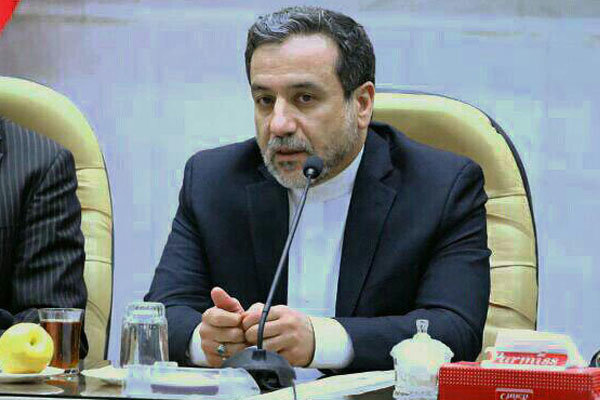Deputy FM: All JCPOA parties see U.S. as root cause of tensions

TEHRAN- The Iranian deputy foreign minister for political affairs said on Friday that Russia, China, Britain, France and Germany unanimously blame the U.S. for the standoff surrounding the 2015 nuclear deal.
Seyed Abbas Araqchi made the remarks at the end of the meeting of the remaining parties to the Joint Comprehensive Plan of Action (JCPOA) in Vienna.
“In the meeting, the entire member states laid emphasis on the U.S. as the root cause of tensions regarding the JCPOA,” he told reporters.
The meeting was chaired by Araqchi and Helga Schmid, secretary-general of the European External Action Service (EEAS).
European parties to the JCPOA asked Iran to stop taking steps away from the accord but stopped short of triggering a mechanism that could renew United Nations sanctions, al Jazeera reported.
The three-hour meeting in Vienna, the first with all remaining parties since July, came as Iran is rolling back its commitments under the deal following Washington's withdrawal last year and imposition of "maximum pressure" sanctions.
So far, the Atomic Energy Organization of Iran (AEOI) has taken four steps to cut back commitments in accordance with paragraph 36 of the JCPOA which “allows one side, under certain circumstances, to stop complying with the deal if the other side is out of compliance.”
On May 8, exactly one year after the U.S. abandoned the deal, Tehran announced that its “strategic patience” is over and began to partially reduce its commitments to the agreement at bi-monthly intervals.
In the first stage, Iran announced that it will not limit its stockpile of the nuclear fuel to 300 kilograms allowed under the deal. On that date (May 8) Iran’s Supreme National Security Council (SNSC) said if the remaining parties to the JCPOA, especially Europeans, devise a mechanism to protect Iran from the sanctions’ effect in the two-month deadline it will reverse its decision.
But since European parties missed the deadline, on July 7 Iran announced that it has started enriching uranium to a higher purity than the 3.67%, thereby starting the second step.
Again, as Europe missed the second 60-day deadline, Iran moved to take the third step, removing a ban on nuclear research and development (R&D).
In the latest step, which was done on November 6, Iran started injecting uranium gas into 1,044 centrifuges at the Fordow nuclear site. It was done at the presence of inspectors from the IAEA.
This happened again after the Europeans failed to take concrete steps to save the JCPOA.
Iran has said lifting ban on its oil export and financial transactions are the main conditions to reverse its decision.
Araqchi calls a meeting with new IAEA chief good
In the meantime, Araqchi experienced his first meeting with Rafael Grossi, the newly-appointed director-general of the International Atomic Energy Agency (IAEA), soon after the JCPOA meeting ended, saying, “As a beginning, it was a good meeting.”
“The agency’s director-general underscored that this body’s cooperation with Iran must be preserved,” Araqchi further said.
The top Iranian negotiator said, “We conferred on some issues and solutions in the meeting.”
MJ/PA
Leave a Comment